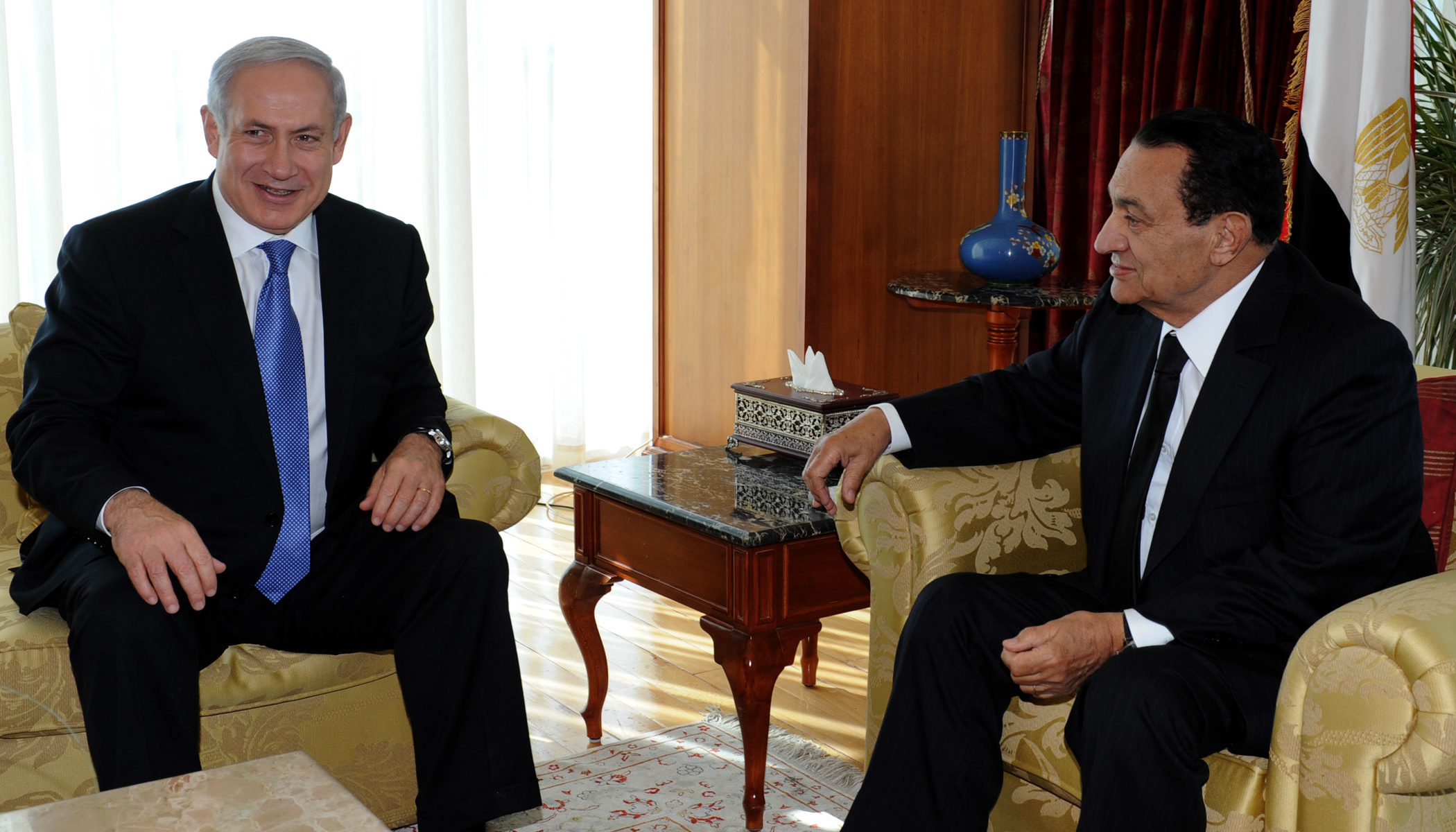WASHINGTON (JTA) — Hosni Mubarak’s legacy was supposed to be an Egypt preeminent in the region and at peace with its neighbors, but the instrument he used to achieve it — the absolute power of the state — undid him and could sweep away the remnant of that legacy.
Mubarak, who as of Tuesday was reportedly in a coma, once wielded the type of power that ultimately did him in.
“It is not just Mubarak that is on life support at this moment — Egypt’s creaky institutions and its nascent democracy are as well,” Steven Cook, an Egypt expert at the Council on Foreign Relations, wrote Wednesday on the Foreign Policy website.
“Its politics are broken, its infrastructure in disrepair, its economy near collapse, its state education system in disarray, and its public health system nonexistent,” Cook added. “If anything, this is the legacy of Hosni Mubarak: the evisceration of his beloved country.
Mubarak, sentenced earlier this month to life in prison for ordering hundreds of killings during the early 2011 protests that ended his 30-year reign, was placed on life support on Tuesday, according to media reports.
Prospects of the ailing Mubarak’s comeback were in any case worse than nil, but news of his deteriorating condition prompted renewed consideration of what the deposed president bequeathed Egypt.
Gabi Ashkenazi, the former chief of staff of the Israeli military, spoke Wednesday at the Israeli Presidential Conference of Mubarak’s importance not just in upholding the peace treaty with Israel, but in encouraging other Arabs to do the same.
“When Arafat was slow to sign the Oslo Accords, Mubarak was the one who forced him to the table to sign — even using undiplomatic language,” Ashkenazi recalled, referring to Oslo II, signed in September 1995 in Egypt.
Mubarak, in a televised ceremony, literally nudged then-Palestinian Authority President Yasser Arafat to the table as a bemused Yitzhak Rabin, then the Israeli prime minister, looked on. Israelis present insisted that they heard Mubarak whisper to Arafat, “Sign, you dog.”
“Try to think of an Egyptian president today doing that,” Ashkenazi said.
It was a concern echoed across the ocean, where Shaul Mofaz, the Kadima party leader, inaugurated his first Washington visit in his new role as deputy prime minister in Prime Minister Benjamin Netanyahu’s recently formed national unity government.
“Whatever happens, we will be facing a more radical regime,” Mofaz told the Washington Institute for Near East Policy think tank ahead of a series of meetings with top U.S. officials. He called the need to preserve his country’s peace with Egypt the “highest Israeli goal.”
Reports in Cairo said the rumors about Mubarak’s health helped swell the numbers in Tahrir Square protesting steps taken in recent weeks by the courts to support the interim military government’s decision to gut the parliament and limit the powers of Mubarak’s successor.
Both candidates in Egypt’s presidential election over the weekend — the Islamist Muslim Brotherhood’s Mohamed Morsi and Ahmed Shafik, Mubarak’s last prime minister and a candidate with the tacit backing of the military — are claiming victory.
Joel Rubin, the director of government policy at the Ploughshares Fund, a body that promotes peace initiatives, said the very autocracy that spooked Arafat and others into heeding Mubarak ultimately turned on his enterprise.
“Mubarak’s legacy is that he created a state system that collapsed underneath him,” said Rubin, a former Senate staffer and State Department Egypt desk officer who has visited Egypt multiple times. “He certainly maintained peace with Israel — a cold peace, but he kept the border relatively calm and fought against extremist groups in the country. But he left a crushing legacy on the economy and political system. Stability under strongmen is never really stable.”
Mubarak spurred privatization reforms in the 1990s that helped grow Egypt’s economy, but they did not trickle down because he also tolerated — if not encouraged — the kleptocracy of the Egyptian elites, said David Schenker, an Egypt expert at the Washington Institute and a former Pentagon Middle East official.
“As a result, people have come to associate a free market economy with crony capitalism,” Schenker said.
“There is no longer respect or fear of Egypt,” he said. “Mubarak presided over this.”
Ultimately, the thieving weakened Egypt’s economy and undercut its regional influence. Whereas in the 1990s Mubarak could strong-arm Arafat into peace, in the 2000s he was barely able to get the Palestinian polity, split between Hamas Islamists and Palestinian Authority moderates, to heed his pleas for a unified front.
Additionally Mubarak, while working closely with the United States to advance strategy, promoted a “safety valve” of anti-Americanism and anti-Semitism through the state-controlled media. The resulting resentments have exacerbated resentments among Egyptians of the West and suspicions of Israel.
These resentments also were the result of successive U.S. administrations that failed to make democratic reforms conditional on the billions of dollars that Egypt was receiving in defense assistance, much to the chagrin of lawmakers from both parties in Congress.
JTA has documented Jewish history in real-time for over a century. Keep our journalism strong by joining us in supporting independent, award-winning reporting.






